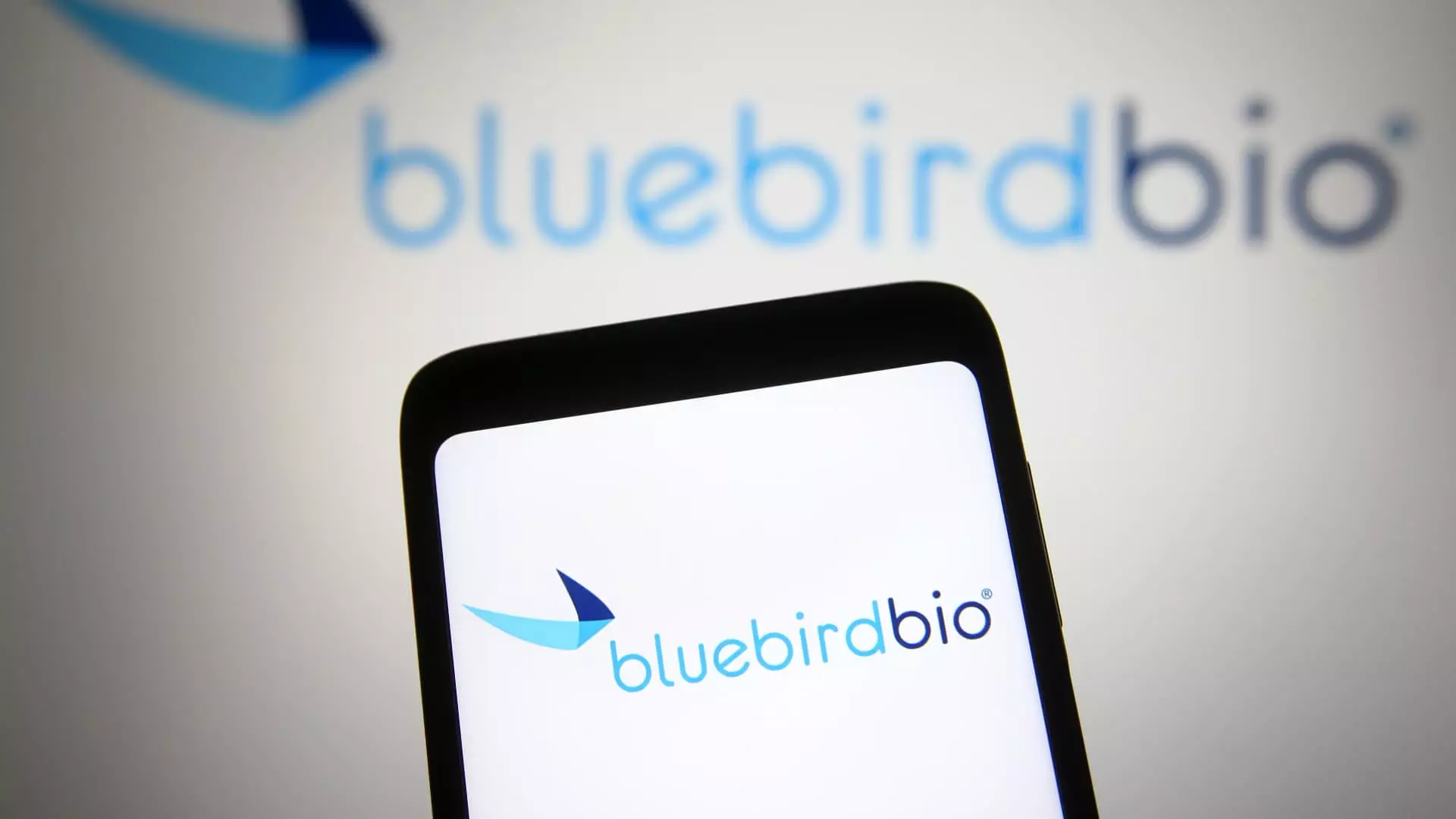Bluebird Bio, once heralded as a pioneer in the gene therapy sector, has recently made headlines for all the wrong reasons. The company is in the process of selling itself to private equity firms Carlyle and SK Capital for a mere $30 million, a stark contrast to its peak valuation of nearly $9 billion. This sale not only signifies the company’s dramatic financial decline but also underscores the broader challenges facing the biotech industry, particularly in achieving sustainable business models around innovative therapies. Shareholders are set to receive $3 per share, with a potential increase of $6.84 per share contingent on the company’s gene therapies achieving at least $600 million in annual sales by the end of 2027.
For over three decades, Bluebird Bio was viewed as a beacon of hope for patients afflicted with genetic disorders. The company’s ambitious goal was to create one-time, curative treatments for diseases such as sickle cell anemia and beta thalassemia. However, a series of setbacks began to undermine this vision. In 2018, a pivotal moment occurred when a patient undergoing treatment for sickle cell disease developed cancer, raising critical questions about the safety of Bluebird’s therapies. Though the company asserted that its treatment was not responsible for the cancer diagnosis, the incident catalyzed rising skepticism from the medical community and investors alike.
Moreover, the high price tag of Bluebird’s therapies—such as Zynteglo, priced at an exorbitant $1.8 million per patient—resulted in backlash from European health authorities. This not only led to the withdrawal of Zynteglo from the European market in 2021 but also hindered the company’s international growth prospects. Subsequently, Bluebird shifted its focus toward the U.S. market, with hopes pinned on approvals for its range of therapies, including Lyfgenia for sickle cell disease and Skysona for a rare brain disorder. Despite these advancements, the financial burden remained relentless, leading to an operational crisis.
Bluebird Bio’s financial trajectory paints a sobering picture of mismanagement and strategic blunders. By separating its cancer treatments into a new entity, 2Seventy Bio, Bluebird effectively diminished its own revenue-generating capabilities. As of their last update in November, the company indicated it would only have enough cash to sustain operations into the early part of the ensuing year, showcasing an urgency that is rarely sustainable within the biotech sector.
The stark reality is that the synthetic pipeline has failed to yield the crucial funding necessary to support operations, resulting in a cash-strapped organism that is struggling to survive. This systematic unraveling of the very fabric that made Bluebird Bio a household name in the biotech field is a cautionary tale about the risks of over-reliance on breakthrough technologies without a reinforced infrastructure to support their proliferation.
The plight of Bluebird Bio serves as a microcosm of the challenges faced across the biotech landscape, where once-promising treatments are juxtaposed against financial realities. Competitors like Vertex and Pfizer are experiencing similar struggles with their gene therapies, calling into question the long-term viability of one-time treatments as sustainable business models. The market is now confronted with a critical question: Can the excitement surrounding gene therapy translate into a coherent commercial success, or are these technologies doomed to falter under the weight of operational and financial burdens?
Admittedly, there is a desperate need for innovative therapies that can radically improve patient outcomes; however, Bluebird’s journey illustrates how difficult it can be to turn revolutionary science into a viable enterprise. While there remains hope that the company’s therapies may still transform lives, the sale to Carlyle and SK Capital marks a bittersweet conclusion to Bluebird Bio’s storied rise and fall in the biotech arena.
Bluebird Bio’s situation serves as a wake-up call for investors, stakeholders, and the scientific community, shining a light on the importance of balancing lofty scientific ambitions with pragmatic financial planning. The biotech field is not only about innovation but also about operational sustainability. As the industry continues to grapple with these challenges, the future of gene therapy rests on aligning effective treatment methodologies with viable business strategies. In essence, Bluebird Bio’s sale encapsulates a profound lesson about the need for foresight, agility, and resilience in an ever-evolving industry landscape.


Leave a Reply